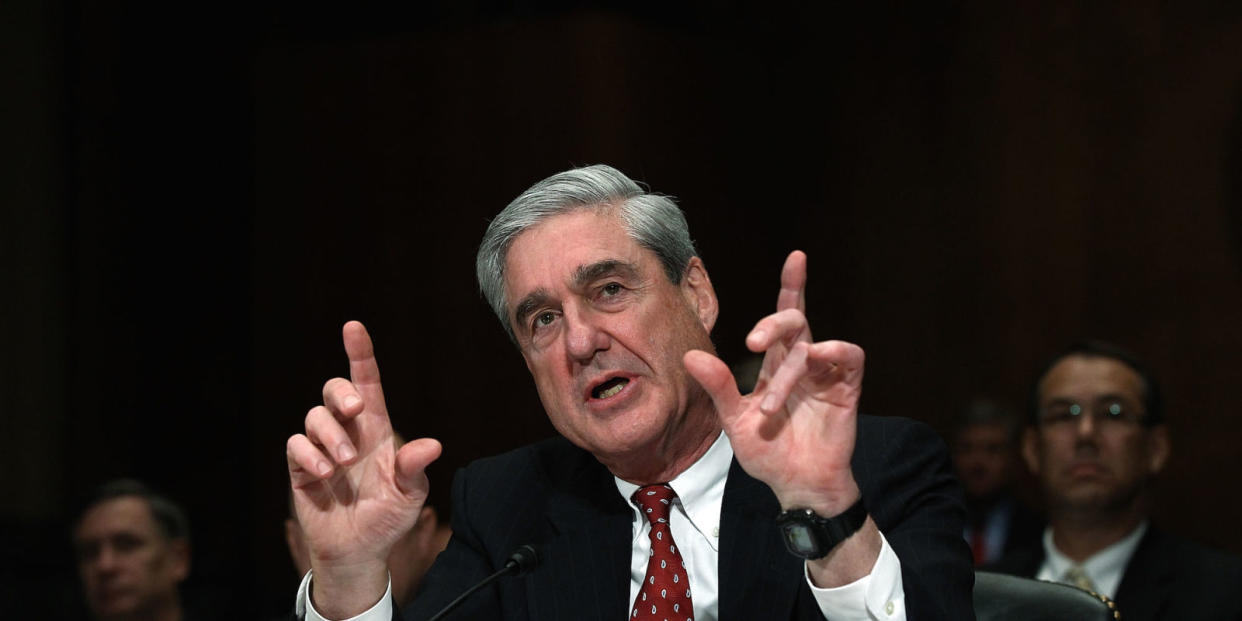BREAKING: The Justice Department Has Named a Special Prosecutor for the Russia Investigation

In a seismic event, the United States Department of Justice just announced a special prosecutor will lead the investigation into Russian interference in the 2016 election, which includes a probe of whether associates of President Donald Trump colluded with Russian officials. Deputy Attorney General Rod Rosenstein selected former FBI Director Robert Mueller, who preceded James Comey in that role from 2001 to 2013 and served under Presidents George W. Bush and Barack Obama.
The move follows months of damaging revelations, salacious leaks, and generalized uncertainty surrounding the investigation, which gradually lost the public's faith as a result. After all, Rosenstein made the selection because the attorney general, Jeff Sessions, was forced to recuse himself after it emerged that he misled a Senate committee about whether he was in contact with Russian officials during the campaign. The Washington Post reported that Sessions met with Russian Ambassador Sergey Kislyak on two separate occasions, something Sessions did not include in his testimony. (Lying under oath to a Senate committee constitutes perjury, but Sessions was confirmed as AG and has never been substantially accused.) The former Alabama senator was also a prominent Trump supporter during the campaign-he was the first senator to endorse him. So, beyond the recusal, the Justice Department already lacked the necessary appearance of independence.
Here is the Justice Department order appointing Robert Mueller as special counsel looking into Russia interference in the 2016 election. pic.twitter.com/mwuEMYeIO5
- Capital Journal (@WSJPolitics) May 17, 2017
And then there was James Comey. President Trump fired the former FBI director last week while his agency was conducting an active investigation into whether the president's associates were colluding with Russian officials during the campaign. The move sent shockwaves through the political world even before it emerged that Comey had asked Rosenstein for more resources for his investigation just a week before. Initially, the White House's position was that Comey was fired on the recommendation of the attorney general and his deputy, who cited his handling of the Hillary Clinton email investigation during the campaign-an obviously bogus pretext. The next day, though, Trump contradicted his own party line, declaring he would have fired Comey regardless because of "the Russia thing."
That's when calls for a special prosecutor really began in earnest, particularly because the White House had established a pattern of trying to interfere in any investigation into Russia. First, they orchestrated the Devin Nunes fiasco, when the chairman of the House Intelligence Committee found himself running back and forth to the White House grounds in what became such a transparent attempt to disrupt the investigation that he was forced to back away from it entirely. And then it emerged that the White House had tried to prevent Sally Yates from testifying before a Senate committee. That was ultimately unsuccessful, and she went on to testify that she informed the White House counsel that it was the Justice Department's opinion that Trump National Security Adviser Michael Flynn was compromised by the Russians.
The move to appoint Mueller is a positive one, and represents the first real act of independence from Rosenstein, a career guy at Justice who came into office with a sterling reputation. (He was confirmed by the Senate 94-6.) That the decision wasn't left up to Sessions is a genuine blessing for American democracy. A number of conflicts still remain, however. Mueller will rely heavily on the FBI to conduct his investigation, and President Trump will still select the next director. Congress must heavily scrutinize whomever he chooses, because he or she could prove tremendously effective in slowing down or disrupting the probe.
This post has been updated.
You Might Also Like

